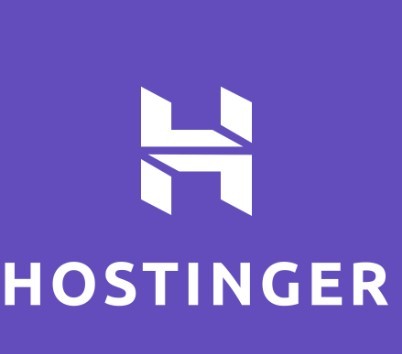In today’s fast-paced digital landscape, protecting your website and customer data is not just a technical consideration—it’s a business imperative. Cyberattacks, data breaches, and identity theft have grown increasingly common, and no website owner can afford to turn a blind eye. Visitors expect a safe, secure online experience; in fact, the presence (or absence) of certain security measures often influences whether users trust your brand and interact with your site. For search engines like Google and Bing, website security is also a ranking factor that can make or break your visibility.
At the heart of website security are technologies like SSL certificates, which encrypt data in transit, prevent unauthorized access, and assure customers that their sensitive details are handled responsibly. Yet, SSL certificates are just one piece of the puzzle. A holistic security strategy involves firewalls, malware scanning, regular updates, strong authentication methods, and more. In this guide, we’ll explore how SSL certificates work, why they’re critical for SEO and user trust, and the additional steps you can take to fortify your site against malicious threats.
Page Contents
ToggleThe Importance of Website Security
Let’s start with the basics. Website security refers to the measures you take to protect your site from unauthorized access, data breaches, malware infections, and other cyber threats. Strong security not only builds trust with your audience but also helps:
- Protect Sensitive Information: If you handle customer details, payment information, or proprietary data, robust security measures ensure these details remain confidential and uncompromised.
- Preserve Brand Reputation: A security breach can erode customer confidence overnight. By safeguarding your site, you preserve the hard-earned credibility of your brand.
- Comply with Regulations: Depending on your industry and region, you may be required to protect user data by law. Non-compliance can result in hefty fines and legal consequences.
- Improve SEO: Search engines reward sites that provide a secure browsing environment. A well-secured site, starting with SSL, can positively influence your search rankings.
In other words, security is about much more than just technical integrity—it’s a cornerstone of business integrity, user experience, and long-term growth.
Understanding SSL Certificates: The Foundation of Secure Websites
SSL (Secure Sockets Layer) is a standard encryption technology that establishes a secure link between your web server and your visitor’s browser. Although the industry has since transitioned to TLS (Transport Layer Security), the term “SSL” is still widely used. When a website uses SSL/TLS, the data exchanged—from login credentials to payment details—is shielded from prying eyes. You can identify SSL-protected sites by the padlock icon in the browser address bar and the “https://” prefix in the URL.
How SSL Works:
- Encryption: SSL scrambles data into unreadable code as it travels between the visitor’s browser and your server, preventing intercepted information from being useful to hackers.
- Authentication: SSL certificates verify that your website’s identity is genuine. A visitor can be confident that they’re communicating with your legitimate site and not a fraudulent impersonator.
- Data Integrity: SSL ensures that data isn’t altered while in transit. This maintains the integrity of the information being exchanged, preventing tampering by malicious actors.
Types of SSL Certificates
Not all SSL certificates are created equal. There are several types, each providing varying levels of validation and trust:
- Domain Validated (DV) Certificates:
- Validation Level: Basic.
- Ideal For: Smaller sites and blogs that don’t handle sensitive data.
- Process: The Certificate Authority (CA) verifies that you own the domain.
- Benefit: Quick issuance and cost-effectiveness.
- Organization Validated (OV) Certificates:
- Validation Level: Moderate.
- Ideal For: Businesses handling user accounts, sensitive form submissions, and moderate eCommerce activity.
- Process: The CA verifies both domain ownership and the legitimacy of the organization.
- Benefit: Increased trust and a more thorough validation process than DV.
- Extended Validation (EV) Certificates:
- Validation Level: Highest.
- Ideal For: Large eCommerce platforms, financial institutions, and organizations where trust is paramount.
- Process: A stringent evaluation of the organization’s identity, location, and legal existence.
- Benefit: Highest level of trust, often represented by a green address bar in some browsers, reassuring users they’re dealing with a genuine, verified entity.
- Wildcard and Multi-Domain Certificates:
- Wildcard SSL: Protects a main domain and all its subdomains (e.g.,
example.com,blog.example.com). - Multi-Domain (SAN) SSL: Covers multiple distinct domains in one certificate (e.g.,
example.com,example.net,myexample.org). - Benefit: Simplifies management if you run multiple sites or subdomains.
- Wildcard SSL: Protects a main domain and all its subdomains (e.g.,
Choosing the right SSL certificate depends on your website’s nature, audience expectations, and the sensitivity of the data you handle. For most small businesses, a DV or OV certificate is sufficient. Larger enterprises may require EV for maximum visitor confidence.
Why SSL is Essential for SEO
Search engines like Google consider SSL usage when ranking websites. Since 2014, Google has treated HTTPS as a ranking signal—meaning secure websites have a slight edge over their non-secure counterparts. Although SSL alone won’t shoot you to the top of the search results, it can compound other SEO efforts:
- Improved User Experience: Users feel safer on HTTPS sites, leading to lower bounce rates and higher engagement signals—factors that indirectly influence your search rankings.
- Competitor Differentiation: If two sites offer similar content and authority, the one with HTTPS often wins a ranking advantage.
- Future-Proofing: The web is moving toward universal encryption. By securing your site now, you’re aligning with industry best practices and long-term trends.
In essence, implementing SSL isn’t just about security—it’s about boosting credibility and staying competitive in organic search.
Beyond SSL: Additional Measures to Bolster Website Security
While an SSL certificate is a critical first step, comprehensive website security involves multiple layers. Consider the following best practices to minimize vulnerabilities and deter cybercriminals.
- Web Application Firewalls (WAF):
A WAF filters and monitors HTTP traffic between your site and the internet. It blocks malicious activity, such as SQL injections, cross-site scripting (XSS), and other common exploits. Many hosting providers and security services offer WAF solutions that are easy to implement and maintain. - Regular Software Updates:
Outdated software is a hacker’s playground. Ensure that your Content Management System (CMS), plugins, themes, and server software are always current. Updates often include patches for known security issues, so staying current is a simple but powerful defense. - Strong Password Policies and Two-Factor Authentication (2FA):
Weak passwords are an open invitation for attackers. Implement strong, unique passwords across all accounts associated with your site. Consider enforcing 2FA for administrative logins, adding an extra layer of security that requires a secondary code or token to gain access. - Malware Scanning and Removal Tools:
Regularly scanning your website for malware can help you detect and isolate threats before they cause damage. Consider employing a reputable security plugin or service that runs automated scans and alerts you to suspicious activity. - Secure Hosting Environment:
Your hosting provider plays a significant role in website security. Opt for a reputable host that offers features such as server-level firewalls, regular backups, and isolated account environments. A reliable host can prevent one compromised account from affecting others on the same server. - Least Privilege Principle:
Provide access only to what is strictly necessary. Limit the permissions of each user or service to reduce the potential damage if one account is compromised. - Regular Backups:
In the event of a breach or technical failure, having a recent backup ensures you can restore your site with minimal data loss. Store backups offsite and verify that they’re functional by performing test restores.
Specific Security Plugins and Tools to Consider
If your site runs on a popular CMS like WordPress, there’s a wide array of security-focused plugins and tools at your disposal. Some noteworthy options include:
- Wordfence (WordPress):
Provides a robust firewall, malware scanning, and login security features. It also offers real-time threat intelligence to keep you updated on the latest vulnerabilities. - Sucuri Security:
A platform-agnostic service that specializes in malware scanning, DDoS protection, and website application firewalls. Sucuri’s dashboard gives you a clear overview of your site’s security posture. - Cloudflare:
Although primarily known as a CDN (Content Delivery Network), Cloudflare also offers advanced security features such as DDoS mitigation, SSL management, and firewall rules to block malicious traffic before it reaches your server. - iThemes Security (WordPress):
This plugin offers extensive security settings, including brute force protection, file change detection, and the enforcement of strong passwords.
Implementing one or two of these tools can significantly enhance your overall security strategy, especially when combined with SSL and a secure hosting provider.
Educating Your Team and Users
Humans can be the weakest link in your security chain. To mitigate this, educate your team and—where appropriate—your users:
- Employee Training:
Teach your staff how to recognize phishing attempts, handle login credentials responsibly, and promptly report any suspicious activity. Even a basic security awareness course can prevent costly mistakes. - User Alerts and Feedback:
If your site allows user accounts, encourage users to set strong passwords and turn on 2FA. Provide clear instructions on spotting phishing emails. The more users feel involved and informed, the less likely they are to fall victim to scams that can indirectly compromise your site.
Monitoring and Responding to Threats
Security isn’t a “set it and forget it” task. Continuous monitoring and rapid response are key:
- Log Analysis:
Regularly review server logs for unusual activity, such as repeated failed login attempts, unexpected spikes in traffic, or requests from suspicious IP addresses. - Security Incident Response Plan:
Have a written plan for how to respond if you detect a breach. Who will you contact? What steps will you take to isolate the threat, restore backups, and update customers? Quick action can minimize damage. - Penetration Testing and Vulnerability Assessments:
Hire a professional to conduct regular penetration tests. These simulated attacks help you identify weaknesses before real criminals exploit them.
The Future of Website Security
As technology evolves, so do cyber threats. New authentication methods (like biometrics), machine learning-driven threat detection, and quantum-resistant encryption algorithms are on the horizon. While it’s impossible to predict every future development, staying informed and proactive ensures you’ll adapt your security measures to meet new challenges.
In particular, the move toward global HTTPS adoption is a trend that will only intensify. Browsers like Chrome already label non-HTTPS sites as “Not Secure,” and we may see tighter restrictions on insecure websites in the future. Implementing SSL and maintaining robust security standards today positions your site favorably for whatever comes next.
Putting It All Together: A Holistic Security Approach
Simply installing an SSL certificate and calling it a day is not enough. A holistic approach to website security involves multiple layers working in harmony:
- Start with SSL:
Make HTTPS the default setting for your site. This foundational step encrypts data and boosts trust and SEO. - Fortify with Additional Measures:
Add firewalls, regular updates, strong authentication, and reliable hosting. Use scanning tools to detect malware and vulnerabilities. - Educate and Monitor:
Train your team, inform your users, and keep a watchful eye on logs and analytics. Respond swiftly if anomalies arise. - Continuous Improvement:
Cybersecurity is never “finished.” Regularly review and refine your strategies. Stay updated on emerging threats and solutions.
By combining these measures, you create a secure ecosystem that reassures visitors, supports compliance, and enhances your online authority. The result? A safer, more user-friendly website that search engines respect and reward with better rankings.
Conclusion: Building a Trustworthy Digital Presence
In an era of online fraud and data breaches, enhancing website security is not a luxury—it’s a necessity. SSL certificates form the cornerstone of secure data transmission, ensuring that communication between your site and visitors remains private and tamper-free. When integrated with a broader security strategy—including firewalls, regular updates, strong passwords, and effective monitoring—SSL sets the stage for a trustworthy and resilient online presence.
Ultimately, website security is about protecting your customers, your reputation, and your bottom line. It’s about meeting user expectations and regulatory requirements while outperforming competitors that neglect this crucial area. Invest in SSL and other security measures today to create a digital environment that attracts visitors, reassures them of your legitimacy, and encourages them to engage confidently with your brand. In doing so, you’ll not only enhance their safety but also secure the future of your online enterprise.
Call to Action
Are you ready to confidently launch your website? First, pick a hosting plan that suits your requirements. These procedures will assist you in creating a strong foundation for your website, regardless of your level of experience as a webmaster. Good luck!


Click on the code below or the Hostinger image to enjoy 20% off when you purchase a plan with Hostinger.
Referral Code: 1LAINE09
If you need assistance, send a message to talktounwrapped@gmail.com.











